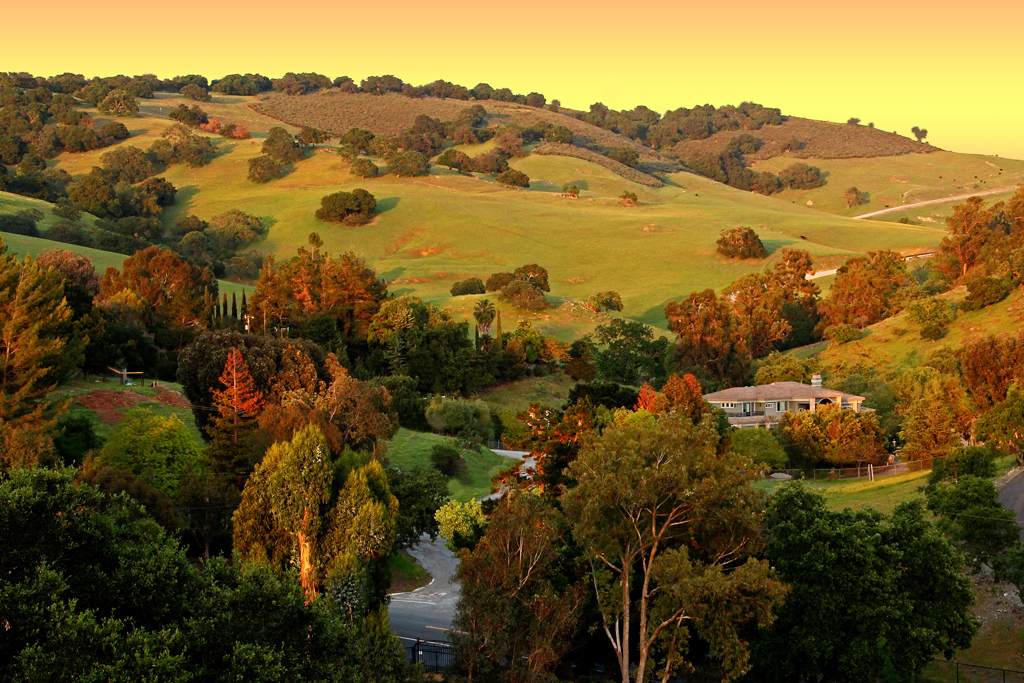Though it’s little more than a trickle, the little creek at the periphery of town is running again after nearly six months as a stream of stones. Following the months of smoke from the worst wildfire season in California’s history, the foothills are vibrantly clear after the first rain of the season.
I sit under a dead sycamore tree until the continuity of thought, as memory and association, word and image, is extinguished in undirected attention. Thought is as dead as the tree over my head, and it is killing the Earth and humanity.
The magnificent bifurcated sycamore of a decade ago is a leper tree of broken limbs and leafless branches now. The sycamore’s slow death over the last ten years has coincided with the destruction (so-called development) of the habitat where I encountered long-eared rabbits, pheasant, gracile falcons, even coyote and rattlesnakes when I first moved to town 25 years ago.

Across the thin creek, the flat is strewn with garbage left by a homeless encampment. Homelessness is a huge problem in California, and the junk is a reminder of society’s gross inequalities, ineptitude and apathy where the poor are concerned.
It’s a good place to camp, even during the rainy season, though the creek can and does swell to a torrent with heavy rains, and inundate the small plain under a steep bank. It’s been one of my favorite meditation places for many years, and I met a fellow one year who had built a nice little encampment. He had been an electrician, and pointed at the monster houses on the ridge miles away, some reaching 10,000 square feet, and flatly said, “I wired some of those houses.”
We talked a number of times across the stream. He was smart and kept himself clean. I helped him out a bit, asking in return that he clean the place and not leave any junk behind. One day he was gone, and the place was clean as a whistle.
In the last few years there’s been a big increase in people camped along the little creek, leaving enormous piles of junk behind. Last year the city cleaned it all up, but it’s almost as bad again this year. One area is blackened from a recent fire, like the small fire that killed the sycamore a decade ago.
A quarter mile behind me now sits the ugliest courthouse I’ve ever seen. And for acres in all directions around it, the most god-awful looking buildings have been constructed.
I talked with the local billionaire developer once, and asked him if there was any vision for the hodgepodge of retro-tech plus Babylonian-style offices, stores and apartments. Even the houses seemed to be designed to convey an anti-aesthetic feeling, which compounds the sadness of the loss of the habitat. He blathered on nonsensically about community.
Meditation can only occur when one remains with things as they are, and things as they were, and allows oneself to feel sorrow, and transcend it. But writing this piece, I recall standing after an hour’s meditation when the place was wild, luminous with the numinous, and watching slender-winged kites hover for half a minute at a time over the fields before tucking their wings back and parachuting to the ground.
During the meditation today as the sun went down, there was the insight that when thought is completely quiet–where there is no thought as memory and association, word and image–God may come. God can only be when the psychological movement of thought is completely still.
By God I don’t mean a voice from on high, or some fatherly or motherly ‘Supreme Being.’ I mean that which is beyond words, a sense of the sacred that suffuses the universe and infuses one’s being.
It’s a very strange thing, with a paradoxical kind of beauty, that the evolution of symbolic thought should both give the human brain the capacity to commune with the inviolability and intelligence that imbues the universe, and be a tremendous impediment to it.

Thought per se is not the problem however; psychological thought, with the self at the center of the detritus of experience that orbits it, is the impediment.
It is also the source of division, conflict, gross economic disparity, war, and the fragmentation of the Earth and the destruction of nature’s integrity and diversity.
Is there a vaccine for psychological thought? Yes, the stillness, peace and insight that come with self-knowing attention in the mirror of nature.
Though having an inner life is arduous, mindlessly continuing in outer-directedness just increases the deadness, within and without.
Martin LeFevre

